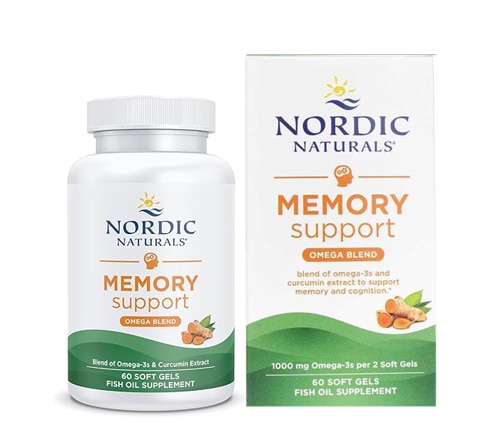Spaced-out. Off-centered. Absent-minded. Drifty.
No matter how you put it, there’s nothing fun about having a muddled mind. You forget your wallet at the market, miss a key deadline, blunder through conversations, trudge through work, fail to recall a name—and just feel downright out of it.
While there are a number of words to describe this confusion and listlessness, “brain fog” has caught on in recent years to crystallize it. And for good reason: the phrase nails home the haziness we feel when we experience it.
But what, exactly, is brain fog—and is there a way to fight it?
“Brain fog is an inability to really punch through,” explains Mady Hornig, psychiatrist and associate professor of epidemiology at Columbia University Medical Center in New York. “It’s a vague sense of what you’re trying to retrieve, but you can’t focus on it, and the effort to harness the thought can be as draining as physical activity.”
What’s more, brain fog—which can last for several days, even months, and affects people of all ages—is often accompanied by a litany of other distressing symptoms, including fatigue, mood swings, headaches, anxiety and mild depression.
While research remains to be done, it’s believed that brain fog is due primarily to lifestyle habits, medication and chemotherapy. But the good news is that habits can change—including the way you approach your life and deal with brain fog when it happens.
To mitigate its effects—and potentially prevent it altogether—consider these seven natural ways to combat a case of mind haze:
1. Eat more good fats
Eating is about far more than satisfying your taste buds: The brain depends on a steady stream of proteins, vitamins and minerals, and glucose from complex carbs to function.
“At the same time,” says Dr. Axe, “we also need plenty of healthy fats to produce adequate happiness and fight inflammation”—the latter of which is often at the crux of brain fog.
Those who favor a low-fat diet that’s packed full of sugar are especially vulnerable to brain fog, because inflammation is “partially caused by imbalances in fatty acids.” Refined vegetable oils and animal products comprise a large part of the average American’s diet, but are lacking in ultra-healthy (and ultra-essential) omega-3s.
Thus, make some simple—but key—changes to your diet. Forgo potato chips for pumpkin seeds, almonds, and walnuts, broil or bake wild-caught fish, switch from butter to olive, flaxseed or coconut oil, snack on chia seeds and soybeans instead of cookies and crackers, and trade in your iceberg for spinach.
2. Go gluten-free to rule out wheat as a possible culprit
The surge in gluten-free foods and gluten-sensitive restaurants might lead skeptics to think that it’s nothing more than a passing trend (remember the fat-free craze?)
But celiac disease and gluten sensitivity are both very real issues—and very valid reasons to avoid gluten (found in wheat, barley and rye), which, if consumed by those with allergies or intolerances to it, may lead to brain fog. Indeed, Dr. Alessio Fasano, director of the Massachusetts General Hospital Center for Celiac Research, says that brain fog impacts about a third of his gluten-sensitive patients, Very Well reports.
Besides getting tested for celiac disease, consider going gluten-free for at least a month to see if your head clears. And with all the products now available, you shouldn’t have a problem doing so. (Gluten-free spaghetti, anyone?)
3. Eat protein with every meal
As mentioned, your brain needs protein to operate. In fact, “in a small study of college-aged women,” Prevention reveals, “eating a protein-rich lunch for 4 months upped levels of iron in their blood and improved their brain power.”
Empower yourself by eating protein not just on Fish Fridays, but with every meal. Top, nutrient-dense choices include beans, eggs, nuts and seeds, organic dairy products (such as yogurt and cheese), lean cuts of poultry and beef, and yes, fish. Try mackerel or tilapia—both are low in mercury.
4. Fast smartly
While research suggests that a good 12-13 hour fast every night may be beneficial to overall health in the long run (in other words, eating dinner before 8pm and eating breakfast after 8am the following morning), going any longer without food can cause a number of uncomfortable symptoms and drawbacks, including cloudiness, lethargy and irritability. (For more on wise ways to detox, go here.)
Why? Brain fog is caused by changes to three central hormones responsible for mood, concentration and energy: serotonin, dopamine and cortisol. When you don’t eat for long periods of time, excess amounts of cortisol (a primary stress hormone) can flood your system and result in fuzzy thinking.
5. Curb your alcohol intake—or, better yet, avoid it altogether
A martini or two with your best friend may sound like a wonderful way to start off the weekend, but you might also wake up on Saturday (and Sunday, and Monday) with a wooly head, zero energy—and a bad mood to boot.
Meaning, even drinking a small amount of alcohol can lead to a mild hangover and brain fog. Enhancing your diet with vitamin B supplements (and vitamin B-rich food, such as fortified cereals and Swiss cheese) could help, but you’re better off going with Kombucha on draft, sparkling water or a faux-jito.
6. Hydrate
The worse your brain fog gets, the more likely you may be to forget to hydrate—thereby intensifying your blurred thinking and overall lassitude.
That is, dehydration is one of the main causes of feeling vaguely jetlagged and drunk (without that martini), so aim to drink at least half of your body weight in water per day. Limit your caffeine intake as well—not only can it make you dazed when its effects wear off, but it’s also a diuretic.
7. Do inversions
Whether or not you practice yoga, you’re probably familiar with the jolt of energy and clear-headedness you receive when you lie at an inverted angle, hang upside down or do a cartwheel.
But have you ever wondered why?
“One of the underlying issues we see in brain fog is the inability to get oxygen and nutrients to the brain,” Rodale Wellness reports. “Many times this comes down to a circulation issue, which can be related to a sedentary lifestyle, lack of exercise, and other factors.”
To reverse this, quite literally reverse your thinking by introducing inversions to your daily life, such as supported shoulder, hand or head stands, plow, feathered peacock pose and waterfall (a basic, restorative asana in which you lie on your back and raise your legs above your heart).
Take it from Medical Director of Canyon Beach Miami Dr. Karen Koffler, who explains that inversions “alter the blood flow (including lymphatic drainage) and flow of cerebral spinal fluid (CSF). If there is increased blood flow to the area, there will be increased bioavailability of oxygen and glucose—the two most important metabolic substrates for the brain.”
Translation? Goodbye, brain fog—and hello, mental clarity.





